At TrustPoint Hospital in Murfreesboro, Tennessee, we understand the emotional burden that is depression, and we also understand how beneficial it can be to receive treatment for this type of mental health concern.
Depression Treatment Overview
Learn more about depression treatment at TrustPoint Hospital in Murfreesboro, TN
Depressive disorders, which are commonly referred to by the general term depression, are several types of mental health disorders that are characterized by profound, persistent sadness, diminished energy, overwhelming hopelessness, and pervasive thoughts of death. Two of the most common types of depression are major depressive disorder and persistent depressive disorder. Other types of depressive disorders are disruptive mood dysregulation disorder, premenstrual dysphoric disorder, and depressive disorder due to another medical condition. In general, the distinctions among the various types of depressive disorders are related to the cause, duration, and severity of symptoms.
Without effective treatment, depressive disorders can wreak havoc on virtually all aspects of a person’s life, and can undermine his or her ability to work, attend school, maintain healthy interpersonal relationships, and otherwise participate in a healthy and productive life. However, with the effective comprehensive treatment that is available at TrustPoint Hospital in Murfreesboro, individuals who have been struggling with various depressive disorders have been able to manage their symptoms and resume their pursuit of much healthier and more satisfying futures.
Helping a Loved One
Helping a loved one or family member get treatment for depression
If a friend or family member has been struggling with depression, you can play an important role in getting him or her the professional help at a depression treatment center that he or she needs. Please consider the following:
First, talk to your loved one. Express your concern, emphasize your support, and ask him or her about what he or she has been experiencing. Asking a person if he or she is depressed, or is thinking about suicide, will not put ideas into his or her head. Instead, your willingness to broach the subject can be an essential first step in opening a dialogue that will lead to treatment, recovery, and significantly improved quality of life for your loved one.
If your loved one has been struggling with a depressive disorder, his or her symptoms may preclude him or her from adequately describing what he or she has been thinking or feeling. However, by listening closely to your loved one’s responses and observing his or her behaviors, you should be able to get a better sense of how his or her life has been impacted by depression.
In addition to speaking to your loved one, you should also conduct your own research into the disease of depression and the types of treatment that have helped others. The combination of your personal knowledge of what your loved one is struggling with, and your newfound understanding of the symptoms and effects of depression will put you in an excellent position to identify programs that may be the best fit for your friend or family member.
You can also help by taking care of logistical issues that may prevent your loved one from seeking treatment or entering a program. Volunteer to make appointments, accompany your loved one to meetings, provide transportation, arrange for childcare, and do whatever else will free your loved one to focus on his or her health. In these and all other efforts, it will be beneficial to recruit a small number of other friends or family members to share the effort.
Of course, it is important to remember that inpatient treatment is just one step in what can be a long recovery journey. Plan to be a source of continued support and encouragement before, during, and after your loved one enters a depression treatment center.
Why Consider Treatment
Why consider depression treatment at TrustPoint Hospital in Murfreesboro, TN
Living with an untreated depressive disorder can be an extremely distressing experience. Among the many negative effects of depressive disorders are problems within interpersonal relationships, setbacks at work and in school, and a pervasive sense of hopelessness and helplessness. Unemployment, financial devastation, social withdrawal, and suicidal thoughts are not uncommon experiences among individuals who live with untreated depression. Complicating matters, many people who struggle with untreated depression and experience the negative repercussions that can result turn to alcohol or other drugs as a means of numbing themselves to their psychological pain. Of course, this only increases both the type and severity of negative outcomes that a person may experience. However, with effective professional care, the dark despair of depression can be transformed into the bright promise of a healthier tomorrow.
Types of Treatment
Types of depression treatment offered at TrustPoint Hospital in Murfreesboro, TN
Located on a 17-acre campus in Murfreesboro, Tennessee, TrustPoint Hospital is an acute care treatment center that is dedicated to providing exceptional care to patients who are in need of immediate treatment to address the symptoms of depressive disorders. With a steadfast mission to improve the quality of life for our patients and their families, our highly qualified and experienced staff members ensure that all patients receive care that is safe, efficient, reliable, and elicits lasting results. At TrustPoint, we deliver patient-centered treatment that addresses individual uniquely as they are, helping them to achieve their recovery goals, while receiving the compassion, integrity, honesty, and trust that they deserve.
At TrustPoint, our behavioral healthcare treatment program is separated into three distinct units. These units include the Adult Behavioral Health Unit, the Adult Affective Disorders Unit, and the Senior Psychiatry Unit. Individuals ages 18 and older who are suffering from depression, anxiety, bipolar disorder, or mood disorders will receive treatment in the Adult Affective Disorders Unit, while individuals who are suffering from thought disorders or other co-occurring disorders will be treated on the Adult Behavioral Health Unit. Individuals aged 65 and older who are suffering from behavioral disturbances as they relate to dementia or other cognitive disorders will receive care on the Senior Psychiatry Unit.
During the admissions process, prospective patients will participate in a thorough assessment so that pertinent information can be gathered, including the symptoms that are present that indicate the need for treatment. The information provided will help clinicians determine what the most appropriate level of care will be for meeting that individual’s specific needs. Included in that determination will be which unit will best help the patient achieve his or her recovery goals.
Patients who receive care at TrustPoint Hospital for depressive disorders are given thorough individualized treatment plans in order to ensure that their particular needs and concerns are appropriately addressed. The following therapeutic interventions may be incorporated into these treatment plans:
Medication management: Patients who are struggling with symptoms related to psychiatric concerns, including those associated with depressive disorders, often benefit from the implementation of certain psychotropic medications. The prescribing of any medications, however, is always determined on a case-by-case basis. Individuals who are taking medication will have the opportunity to meet with a psychiatrist, Licensed Independent Practitioner (LIP), physician, and/or nurse practitioner on an ongoing basis for medication management services.
Individual therapy: Licensed practitioners provide individual therapy on an as-needed basis to patients who are receiving treatment for the symptoms of depressive disorders. Most individual counseling sessions occur with a social worker, and the frequency of those sessions will be determined based on each individual’s clinical need.
Group therapy: Group therapy sessions can be of immense benefit to individuals who are suffering from the symptoms of depressive disorders. Group sessions are held throughout the day and are conducted by social worker, nursing, or adjunct staff members. Social work and nursing groups are either didactic or process-oriented, depending on the patient population and the clinical needs of those participating in the group. The topics discussed during the group therapy sessions will vary, but may include the following:
- Medication management
- Grief and loss
- Anger management
- Disease / disorder education
- Relationships
- Communication skills
- Stress management
- Healthy boundaries
- Guilt and shame
Family therapy: When an individual is suffering from a depressive disorder, including his or her family members into treatment can often be extremely beneficial. When doing so is deemed clinically appropriate for a patient, family therapy sessions will be scheduled on an as-needed basis. These sessions are led by a qualified and experienced social worker.
Experiential therapy: In order to support a holistic approach to treatment when patients are learning to manage the symptoms of depressive disorders, the staff at TrustPoint has found that incorporating experiential therapies into the overall plans of care can be helpful in the recovery and healing process. The types of experiential therapies that patients may participate in during their time at TrustPoint can include the following:
- Music therapy
- Role-playing
- Aroma therapy
- Outside physical activity when appropriate
The typical length of stay in the Affective Disorder and Behavioral Health Units is between seven and 10 days, while those receiving care in the Senior Psychiatry Unit typically stay for 10 to 14 days. The exact amount of time that a patient will spend at TrustPoint, however, is always based solely on his or her clinical needs.
Because TrustPoint’s treatment center delivers acute care to those in need, we recognize how important the discharge process is. In order to ensure that patients remain successful in the recovery gains that they have made while in our care, we strive to set up appropriate continuing care options for them that will best meet their ongoing needs. During a patient’s stay, an interdisciplinary team meeting is held so as to discuss and formulate a discharge plan and set up options for ongoing care services. The information is then presented to the patient and his or her family members.
If you or a loved one is suffering from a depressive disorder and could benefit from comprehensive care in order to stabilize, handle crises, and/or learn how to better manage symptoms, please do not hesitate to contact the caring and compassionate staff at TrustPoint Hospital in Murfressboro, Tennessee. You or your loved one’s suffering can end today.






